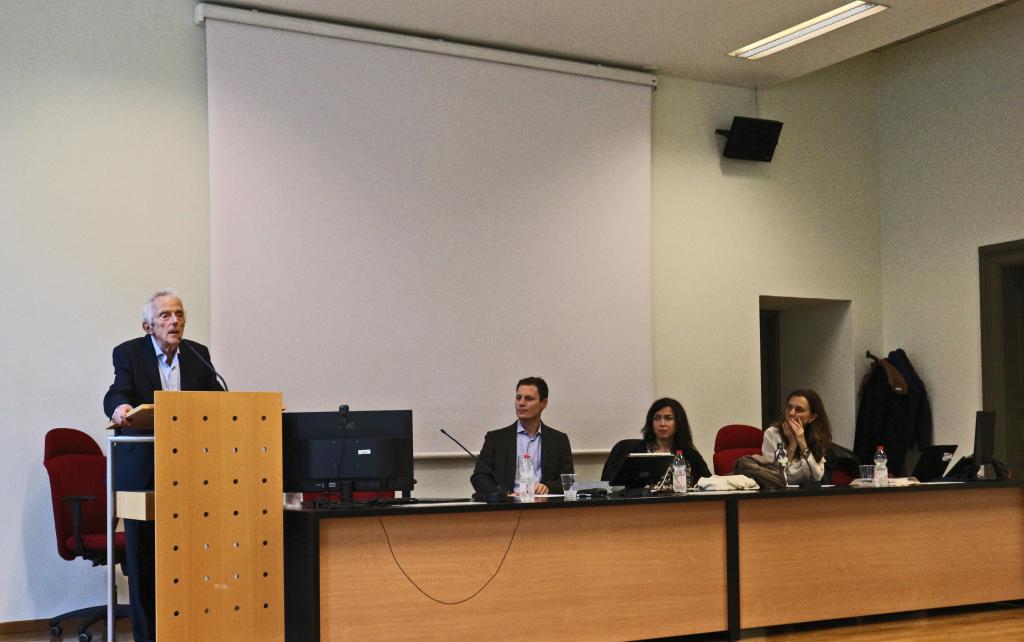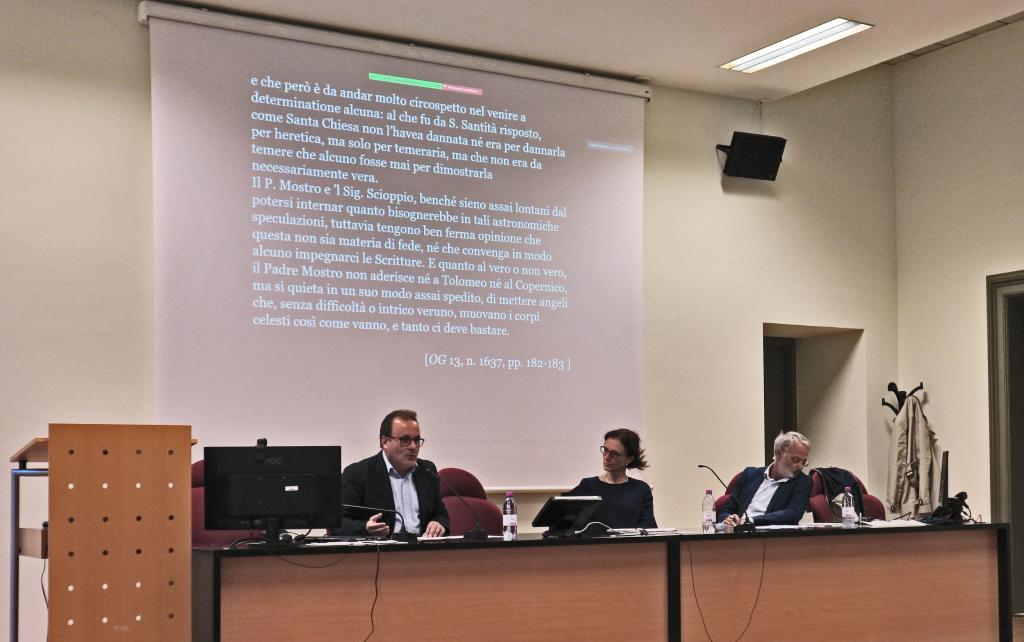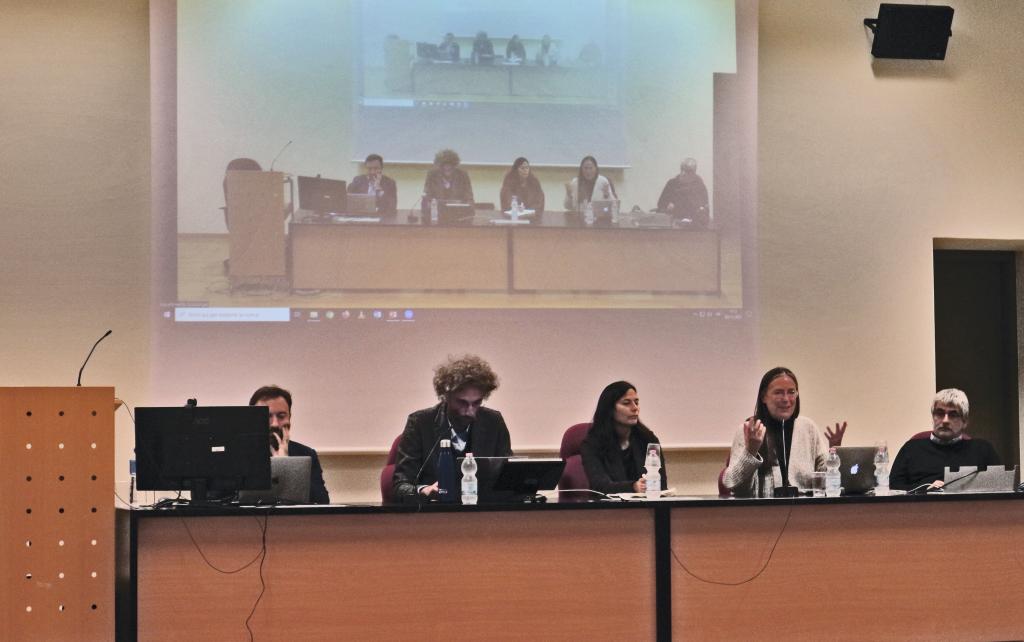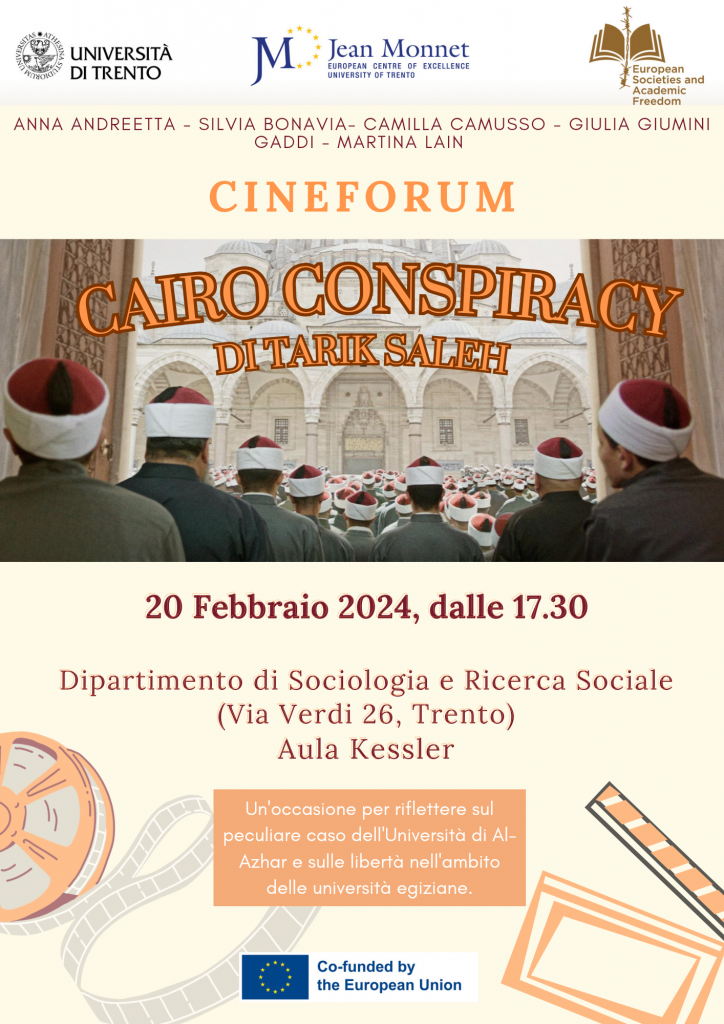ESAF researchers will organize a series of open events on academic freedom (in Italian and/or in English) with the aim of strengthening the university relations with the local/national civil society networks and with secondary education institutions.
This trail of activities will contribute to raising public awareness about the impact of conflicts, authoritarian regimes and different forms of persecution on academic communities, on intellectual and physical displacement and on scientific development.
It will map continuities and peculiarities between past and present violations of academic freedom, linking this to a broader reflection on attacks faced by journalists, writers, artists, lawyers and human rights activists.
Public talks will be organized around a cycle of 4 events (held in the Fall and/or Spring semester). Talks will be given by University of Trento experts, invited speakers as well as students enrolled in the university course, who will present their advocacy reports.
Here below you can find the posters and videos of the planned and past activities within this module:
First year activities

Event Intellectuals in Exile: Challenges and Responses, Peter Burke - 5.10.2022
The history of academic freedom and of its violations is closely linked to the history of diasporas. Expatriate or exiled intellectuals are the protagonists of a still little-known global history of knowledge. Peter Burke offers a mosaic of individual stories, whose tarjectories and experiences of mobility gave rise to a process of emancipation and cultural transfert that have crucially contributed to the achievement of scientific progress.
Event Di mia libera volontà: intellettuali in fuga e fascismo, Patrizia Guarnieri - 12.10.2022
The history of the hundreds of intellectuals fleeing the Italian fascist regime intersects and overlaps with the history of academic freedom in Europe and in other areas of the world. The intellectual emigration from Mussolini’s Italy meant for the country a dry loss of intellectual, scientific and artistic resources, people who contributed to the progress of knowledge elsewhere. The project “Intellectuals Displaced from Fascist Italy”, coordinated by Patrizia Guarnieri, delves into the traumatic history of intellectual mobility during the Ventennio, making a valuable open access portal available to the scientific community and to the general public.

Event Libertà di filosofare in naturalibus: Galileo, Campanella e la lotta per la nuova scienza alla corte di Urbano VIII, Stefano Gattei - 26.10.2022
In the late 1620s, Tommaso Campanella wrote a voluminous commentary on Urban VIII’s Latin poems, in which he gave pride of place to the Adulatio perniciosa (the poem in praise of Galileo and his discovery of sunspots) and presented the pope as an advocate of the new science against the dogmatic Aristotelians from within the Church. This caused a harsh reaction from the Curia and the pope felt betrayed by someone he considered close. Shortly thereafter, when Galileo’s Dialogue on the Two Chief World Systems (1632) was published, it met with an even harsher reaction. The Campanella incident might have contributed to the pope’s resolution to sentence Galileo in 1633, and in his determination never to revise his decision, Galileo's abjuration and old age notwithstanding.

Events La “perniciosa influenza dell'Occidente”: diritti e libertà accademiche in Russia and Storia, politica e memoria: il caso Memorial, Antonella Salomoni and Niccolò Pianciola - 3.11.2022
Antonella Salomoni and Niccolò Pianciola address the topic of academic and research freedom in post-Soviet Russia before and after the outbreak of the war in Ukraine. They will discuss the main legislative measures introduced in universities and secondary education institutions and recent phenomena of intellectual emigration. A specific focus will be on Memorial, the most relevant non-governmental organisation in Russia, recently dissolved by the Russian Supreme Court. In this context the speakers will delve into the evolution of freedom of research and of the Russian memory policies and the transformation of the social and political role of this association over the last thirty years.
Second year activity
Event Internal Threats to Academic Freedom, Ivo De Gennaro, Free University of Bolzano-Bozen - 25.9.2023
When considering threats to academic freedom, it can be helpful to distinguish between those which come from outside the academic domain and those which originate inside it. In a legal perspective, both a state law and a university regulation can encroach on the freedom of teaching and research. A philosophical regard, in turn, observes that, while extra-academic powers often seek to restrict or even negate the autonomy of scientific inquiry, such restriction or negation can also be inflicted by the academic community on itself. The talk will focus on these latter and less discussed threats to academic freedom, which mostly take the form of a variety of evaluative practices. The common feature of these practices is the substitution of scientific judgement with forms of assessment which are based on criteria other than scientific truth. By adopting such criteria, academia effectively relinquishes its autonomy and inner solidity, thus becoming even more exposed to heteronomous direction. An analysis of said “internal threats” bears on a prior diagnosis of the present state of scientific knowledge in its fundamental scope (notably, the process of “technicization” and “societization” of science) and institutional setting (namely, the present rationale of universities). Shedding a light on what is expectable from scientific research and academic teaching today, finally allows to point out a range of untimely practices and forms of governance through which the freedom of scholarly endeavours seems to be curtailed in a manner that menaces our capacity to adequately respond to the “epistemic demands” of our time.

Trento, 20th February 2024
Cinema and Academic Freedom: The Cairo Conspiracy, by Tarik Saleh (2022)
This Cineforum project was realised by a group of five students of the course "Academic Freedom and Human Rights: European and International Perspective" within the Jean Monnet Module European Societies and Academic Freedom co-funded by the European Union.
The activity is part of the Advocacy Laboratory: Research and Practices and aims at raising awareness of academic freedom in Egypt. Specifically, the activity was off campus and meant to involve not only the academic personnel, but more broadly the civil society. We screened the movie "Cairo Conspirancy" by Tarik Saleh to focus on the peculiar reality of Al - Azhar within the Higher Education system in Egypt. In particular, the director's aim was to stress the struggles of powers influencing the election of the new Great Imam, not only the head of Al - Azhar as an institution, but more in general the authority of Sunny Islamic World. Despite Al - Azhar unicity, these influences on the nomination show us a systematic lack of institutional autonomy, mirrored also by many cases within public universities in the country.
The movie was preceded by a brief introduction on our advocacy activity and on the scope of the course we attended; later on, we managed to collect the audience's opinions on the topic deepened by the movie. The discussion broadened toward a focus on the social dynamics in the country and on the paradoxical difference between what is stated de iure by the constitutional guarantees and the de facto violations of fundamental rights by the authoritarian regime.
This experience helped our research group to share and concretize the aim of creating awareness via an informal but, at the same time, truly efficient moment of debate. Academic Freedom shall be considered pivotal not only in the academic environment, but by the society in its entirety as beneficiary of independent research and education.
Anna Andreatta (Department of Sociology), Silvia Bonavia, Camilla Camusso, Giulia Giumini Gaddi, Martina Lain (Faculty of Law).

